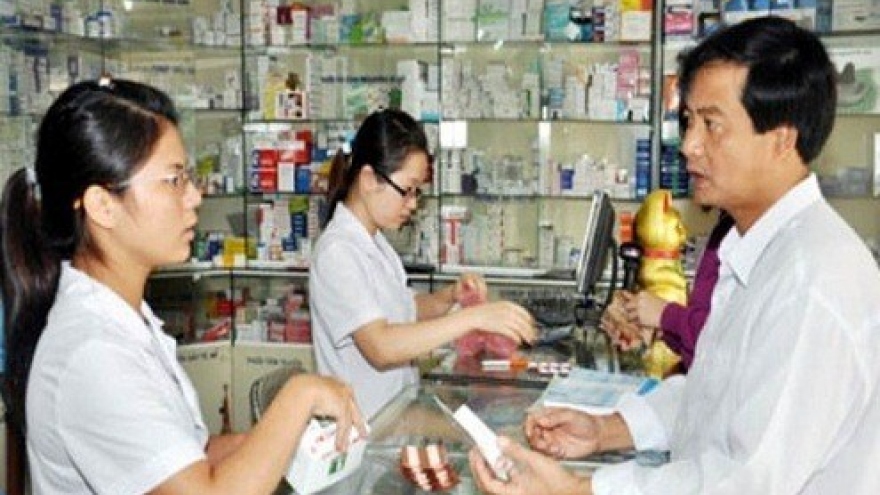Health Ministry announces top ten medical events in 2016
The Ministry of Health on December 22 announced the top ten notable events of the sector in 2016.
 |
1. Vietnam welcomes the first baby born through surrogacy
Vietnam’s first surrogate baby was born at the Hanoi-based National Hospital of Obstetrics and Gynaecology on January 22, marking the success of applying Vietnam’s surrogacy techniques.
The surrogacy was carried out in line with the revised Marriage and Family Law which was approved by the National Assembly in 2015.
Since the approval of the law, nearly 200 applications have been approved for the procedure, of which, over 30 successful surrogacy pregnancies are taking place. Only three hospitals meet the technical requirements for surrogacy, including the National Hospital of Obstetrics and Gynaecology, Tu Du Hospital in Ho Chi Minh City, and Hue Central Hospital.
2. Measures taken to meet patients’ greater satisfaction.
One year after the Health Minister issued a renovation plan on conducting reviews of services and health workers’ attitudes towards patients, the majority of health workers are aware of the necessity of improving their attitude and communication skills while they are on duty.
The healthcare sector has also worked hard to increase the effectiveness and professionalism in providing services in order to raise the quality of health check-ups and treatment for patients.
3. Vietnam successfully produces measles-rubella vaccine
The Centre for Research and Production of Vaccines and Biology announced on November 8 that it successfully produced a combined measles-rubella vaccine with the assistance of Japanese experts.
In March 2016, the measles-rubella vaccine was clinically tested and proven both safe and effective.
This vaccine is scheduled to be provided to the national expanded immunization programme targeting Vietnamese children by 2017.
4. First robot-assisted surgery for adults performed in Vietnam
Binh Dan Hospital in Ho Chi Minh City on December 10 officially applied robotic surgeries for adult patients, becoming the first of its kind in Vietnam to offer such an advanced technique for adults.
Binh Dan Hospital has utilised the robotic surgical system since November, and is now the only clinic to offer robot-assisted surgeries for adult patients. The equipment can help surgeons access the most remote and smallest areas of the patient’s body.
Earlier in 2014, a robotic surgical platform was deployed for young patients at the Vietnam National Hospital of Pediatrics in Hanoi.
5. 81.3% of population covered by health insurance
A total of 81.3% of the population was covered by health insurance as of November 30, 2016, equivalent to 75,160,311 people, exceeding the target set by the National Assembly and the Government (79%).
The Vietnam Social Insurance recently submitted a proposal to the Government setting a target of having 90% of the population covered by health insurance by 2020.
6. Health Ministry improves its public administrative reform index
The Ministry of Health scored the public administrative reform index of 86.85 points on a scale of 100, according to the Government’s report released on August 17.
With the result, the ministry jumped up nine places in comparison with last years report.
7. Plan to develop communal health system receives approval
The Prime Minister has approved a plan to develop a new local-level medical network by 2025 to improve the capability and service quality of health care for Vietnamese.
The proposal is aimed at ensuring that all communal medical centres are qualified to provide medical examination and treatment of patients with health insurance.
All communal medical centres will also have to meet the national criteria for communal healthcare.
8. Hospital fees now cover the salaries of doctors and health workers
The health ministry had drawn up a roadmap until the end of 2017 to increase hospital fees, which also covers the salaries of doctors and other health workers.
The fee hike was applied in 32 provinces and cities, where 85% of the residents have health insurance cards.
The fee adjustment was aimed at ending subsidies to hospitals and gradually improve the quality of healthcare services.
9. IT system for managing healthcare services put into operation
An IT system for managing healthcare services was put into operation, helping to connect data among management agencies, medical clinics and Vietnam Social Insurance.
The system is designed to provide adequate and accurate information about patients while giving check-ups and making insurance payments.
10. Vietnam elected to World Health Assembly’s Executive Board
Vietnam was elected as representatives for the Western Pacific region in the World Health Assembly’s Executive Board for a three-year tenure between May 2016 and May 2019.
The selection was made at the 66th session of the World Health Organization Regional Committee for the Western Pacific, which concluded in Guam, the US, on October 16, 2015.
As a representative of ASEAN in the Western Pacific region, Vietnam is expected to provide a voice representing developing countries.


